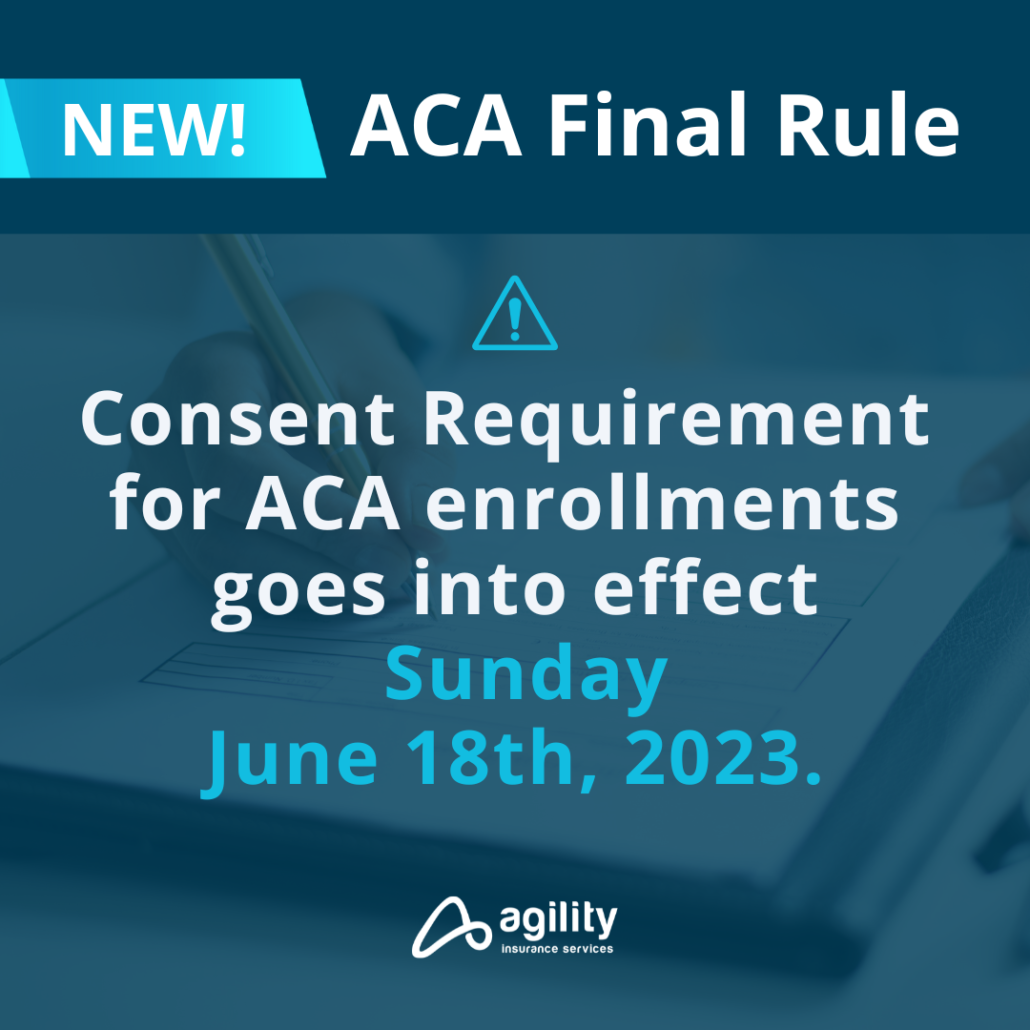Health and Human Services (HHS), the regulating body for the Individual and Family Plans (IFP), aka ACA, released their annual guidance changes and policy additions. The most urgent item to note is a change to the existing requirement that agents, brokers, or web-brokers assists with and facilitate enrollments in coverage through Federally Funded Exchanges (FFEs) and State Based Exchanges (SBEs) or assisting an individual with applying for Advanced Premium Tax Credit (APTC) and CSRs for Qualified Health Plans (QHPs) must obtain consumer consent prior to assisting with or facilitating enrollment. Note: consent has long been a requirement for serving these programs and consumers.
What is changing effective 6/18/2023
-
- Registered agents and brokers assisting consumers in applying for and enrolling in Marketplace coverage must document consumer consent prior to accessing or updating their Marketplace information. CMS does not prescribe (mandate) the manner in which agents and brokers must document consent. Instead, different formats that may be acceptable for agents and brokers to document consumer consent, such as via a recorded phone call, text message, email, electronic document with digital signatures, physical document with wet signatures, etc.
Required documentation must include:
-
- Date of consent
-
- Name of consumer or authorized representative giving consent
-
- Name of agent, broker, web-broker, or agency being granted consent
-
- Description of the scope, purpose of consent, and duration of the consent
-
- Process (that was shared with the consumer) through which the consumer can rescind the consent.
Why is this changing:
-
- To reduce complaints and confusion related to Agent of Records
-
- To ensure that a consumer is aware and involved in the modifications of their profile and who has access to it
-
- To reduce false enrollments of consumers by entities without expressed authority to do so
- To reduce Federal and State funds (aka tax dollars) being used for fraudulently initiated policies



